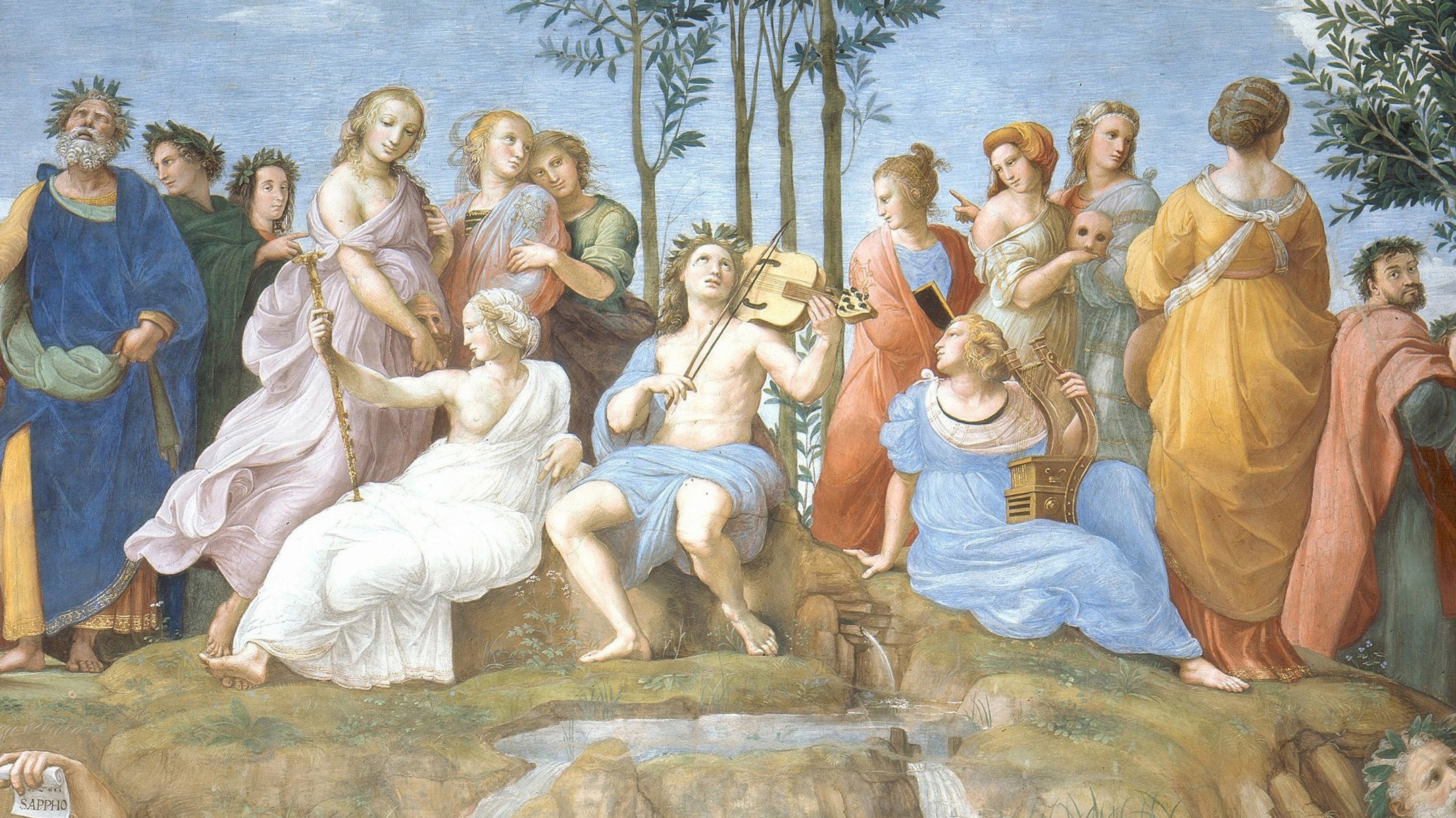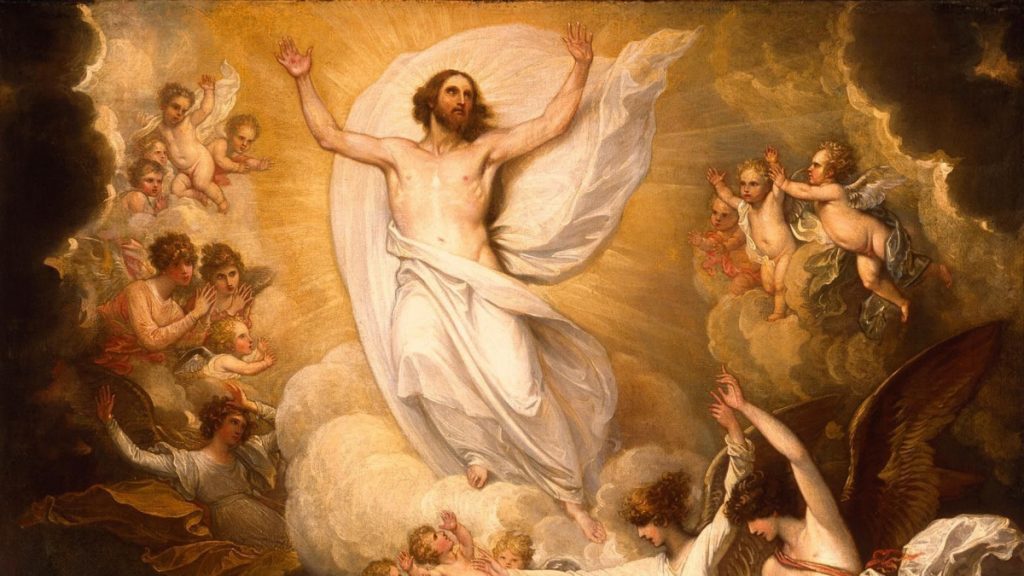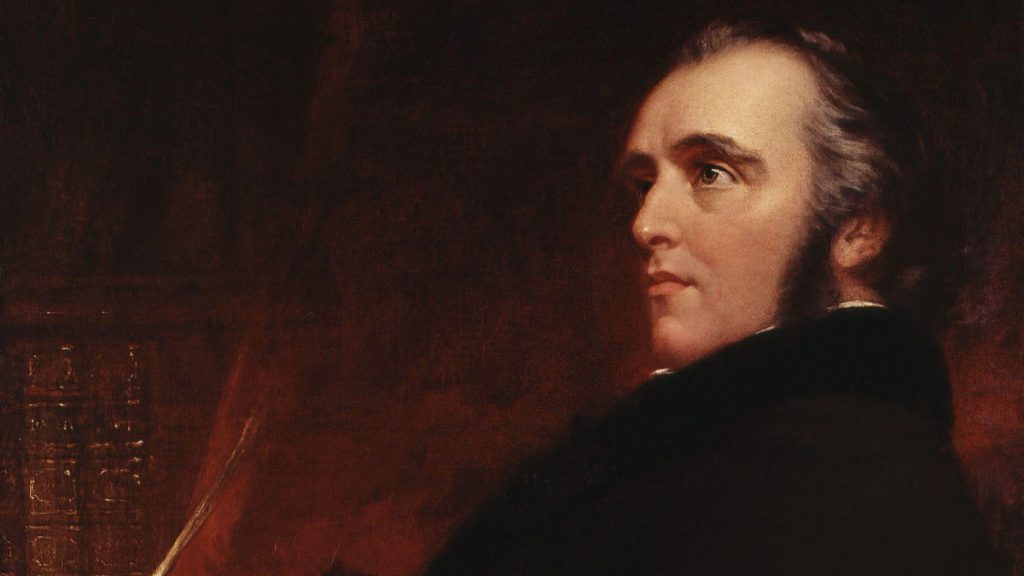(Updated April 11, 2025)
This Quote Archive is The Ancients on Music. Each Archive is a treasury of original source quotes on various topics relevant to the Catholic Faith, and addressed in Becoming Catholic articles. They are intended to help people explore the “gold, silver, and precious gems” that have been mined and sifted from the sources of the Great Tradition by Eternal Christendom as a labor of love for our readers, and all seekers of Truth. They are periodically updated as more research is completed.
This Quote Archive covers the topic of music and its formative role in developing virtue and culture by a variety of ancient (pre-modern) thinkers.
Aristotle (384-322 BC) | GREECE
Aristotle, Politics1
(Book 8, Ch. 3, 5)
(Ch. 3) …Roughly four things are generally taught to children, (a) reading and writing, (b) physical training, (c) music, and (d) not always included, drawing. Reading and writing and drawing are included as useful in daily life in a variety of ways, gymnastic as promoting courage. But about music there could be an immediate doubt. Most men nowadays take part in music for the sake of the pleasure it gives: but originally it was included in education on the ground that our own nature itself, as has often been said, wants to be able not merely to work properly but also to be at leisure in the right way. And leisure is the single fundamental principle of the whole business… 455 | 456
Hence, in the past, men laid down music as part of education, not as being necessity…There remains one purpose—for civilized pursuits during leisure; and that is clearly the reason why they do introduce it, for they give it a place in what they regard as the civilized pursuits of free men. Thus Homer’s 456 | 457 line, ‘to summon him alone to the rich banquet’; and after these words he introduces certain other persons, ‘who summon the bard whose singing shall de3light them all.’ And elsewhere Odysseys says that the best civilized pursuit is when men get together and ‘sit in rows up and down the hall feasting and listening to the bard.’
Clearly then there is a form of education which we must provide for our sons, not as being useful or essential but as elevated and worthy of free men…
[T]o be constantly asking ‘What is the use of it?’ is unbecoming to those of broad vision and unworthy of free men.
Since it is obvious that education by habit-forming must precede education by reasoned instruction, and that education of the body must precede that of the intellect, it is clear that we must subject our children to gymnastics and to physical training; the former produces a certain condition of the body, the latter its actions…
(Ch. 5) …To begin with, it is not easy to define either what the effect of music is or what our object should be in engaging in it. Is it for our amusement and refreshment, like having a sleep or taking a drink? These things are not in themselves of serious importance, though they are pleasant and help us to forget our worries…Must we not rather regard music as a stimulus to virtue, capable of making a certain kind of character (in just the same way as gymnastic training produces a body of a certain type), by accustoming men to be able to enjoy themselves in the right way? Third on this list of possibilities must be that it has a contribution to make to civilized pursuits and practical wisdom.
It is clear then that we are not to educate the young with a view to their amusement. Learning brings pain, and while children are learning they are not playing…Still, one might perhaps suppose that serious activity in childhood may have for its aim the amusement of the complete and adult man. But if this is so, what need is there for them themselves to learn music?… 462 | 463
The same question arises when we ask whether music has the power to improve the character…
[O]ur chief inquiry now is whether or not music is to be include in education, and what it can achieve. To take the three things we have canvassed, does music promote education, or amusement, or civilized pursuits? It is reasonable to reply that it is grouped with, and apparently forms part of, all three.
Xunzi (c. 310-after 238 BC) | CHINA
Xunzi, Xunzi2
(Ch. 20: Discourse on Music)
Music is joy, an unavoidable human disposition. So, people cannot be without music; if they feel joy, they must express it in sound and give it shape in movement. The way of human beings is such that changes in the motions of their nature are completely contained in these sounds and movements. So, people cannot be without joy, and their joy cannot be without shape, but if it takes shape and does not accord with the Way, then there will inevitably be chaos. The former kings hated such chaos, and therefore they established the sounds of the Ya and the Song [sections of the Odes] in order to guide them. They caused the sounds to be enjoyable without becoming dissolute. They caused the patterns to be distinctive without becoming degenerate. They caused the progression, complexity, intensity, and rhythm of the music to be sufficient to move the goodness in people’s hearts. They caused perverse and corrupt qi to have no place to attach itself to them. This is the manner in which the former kings created music…
And so, when music is performed in the ancestral temple and the ruler and ministers, superiors and inferiors, listen to it together, none fail to become harmoniously respectful. When it is performed within the home and father and sons, elder and younger brothers listen to it together, none fail to become harmoniously affectionate. And when it is performed in the village, and old and young people listen to it together, none fail to become harmoniously cooperative. Thus, music observes a single standard in order to fix its harmony, it brings together different instruments in order to ornament its rhythm, and it combines their playing in order to achieve a beautiful pattern. It is sufficient to lead people in a single, unified way, and is sufficient to bring order to the myriad changes within them. This is the method by which the former kings created music…
Thus, in listening to the sounds of the Ya and Song, people’s thoughts and intentions are broadened… 218 | 219 Hence music brings great uniformity to all under Heaven. It is the key to balance and harmony and something that the dispositions of human beings cannot avoid. This is the method by which the former kings created their music…
Moreover, music is the means by which the former kings adorned their happiness…Therefore, when they were happy, all under Heaven harmonized with them, and when they were angry, then violent and disorderly people feared them. Ritual and music are precisely the height of the way followed by the former kings…
Sounds and music enter into people deeply and transform people quickly. Therefore, the former kings carefully made for these things a proper pattern. If music is balanced and peaceful, then the people will be harmonious and not dissolute. If music is solemn and majestic, then the people will be uniformly ordered and not cause chaos. When the people are harmonious and uniformly ordered, then the state’s soldiers will be vigorous, and its fortifications will be solid, and rival states will not dare to touch it. When the situation is like this, then the common people will all rest secure in their dwellings and delight in their villages, such as to provide sufficiently for their superior. Then their superior’s fame will be clear, his glory will be great, and all the people within the four seas will want to have him as their governor. This is the beginning of being a true king.
If music is dissolute and dangerous, then the people will be dissolute, arrogant, vulgar, and base. If they are dissolute and arrogant then they will cause chaos. If they are vulgar and base then they will struggle with each other. If they cause chaos and struggle with each 219 | 220 other, then the state’s soldiers will be weak and its fortifications vulnerable, and rival state will put them in danger. When the situation is like this, then the common people will not rest secure in their dwellings and not delight in their villages, and will not provide sufficiently for their superior. And so when ritual and music are discarded and deviant tunes arise, this is the root cause for the superior being endangered, disgraced, and having his territory diminished. Thus the former kings valued ritual and music and considered deviant tunes base…The work of the Music Master is to cultivate government regulations and orders, to keep watch over poetry and artistic form, to prohibit perverse music, and to smoothly cultivate these tasks at the appropriate times, so as to prevent barbarian, vulgar, and deviant tunes from daring to disorder the refined pieces…
Music is something in which the sages delighted, for it has the power to make good the hearts of the people, to influence men deeply, and to reform their manners and customs with facility. Therefore, the former kings guided the people with ritual and music, and the people became harmonious and congenial. For the people have dispositions to like and dislike things, but if they are allowed no happy or angry reactions, then there will be chaos. The former kings hated this chaos, and so they cultivated their conduct and set in order their music, and all under Heaven became peacefully compliant by these things…
Dissolute customs and tunes of Zheng and Wey make people’s hearts licentious…And so, the gentleman’s ears will not listen to licentious sounds. His eyes will not look upon seductive sights. His mouth will not issue foul doctrines. These three are things that the gentleman is careful about.
Whenever wanton sounds arouse a persons, a perverse qi responds to them from within. When this perverse qi takes form, then chaos results from it. But when proper sounds arouse a person, a compliant qi responds to them from within. When this compliant qi takes form, then good order results from it….Therefore, the gentleman is careful about what he rejects and what he draws near to. 220 | 221
The gentleman guides his intentions with bells and drums…And so, his purity resembles Heaven, his broadness resembles the Earth, and the way he postures and resolves has resemblance to the four seasons.
Thus:
When music is played, intentions gain purity.
When rites are studied, conduct turns out perfectly.
They make one’s ears acute and they make one’s eyes sharp;
They give one’s blood and qi balance and harmony;
They modify customs and they alter habits,
So all the people in the world live peaceably.
And those who are good and fine delight in each other.And so I say: Music is joy. The gentleman takes joy in attaining the Way. The petty man takes joy in attaining the object of his desires. If one takes the Way to regulate one’s desires, then one will be happy and not disordered. If one forgets the Way for the sake of one’s desires, then one will be confused and unhappy. And so music is the means to guide one’s joy…When music proceeds, then the people will turn toward what is correct. Thus, music is the height of ordering people…
Music, moreover, is unchanging harmony, and ritual is unalterable order. Music unites that which is the same, and ritual distinguishes that which is different. Together the combination of ritual and music governs the human heart.
To penetrate to the root and encompass all change—this is the essential disposition of music. To make clear integrity and do away with pretense—this is the guiding principle of ritual…[T]he enlightened kings have passed away, and so no one corrects them. Foolish people study his ways and so endanger themselves. The gentleman clearly understands the value of music, and this is his virtue. Yet, a chaotic age hates what is good, and so will not heed him. Alas, how sad! He cannot Succeed. You disciples must work hard at your studies and not be confused… 221 | 223
These five kinds of conduct—differentiating noble and lowly, distinguishing exalted and lesser, gathering in harmony and joy without becoming dissolute, treating appropriately junior and senior without leaving anyone out, and enjoying comfort and relaxation without becoming disorderly—these are sufficient to rectify one’s person and to settle the state. And when the state is settled, then all under Heaven will become settled. Hence I say: when I observe the village drinking ceremony, I know how easy and carefree the way of a true king is.
The signs of a disordered age are these: Men’s clothing is elaborately woven. Their appearances are womanish. Their customs are licentious. Their intentions are set on profit. Their conduct is irregular. Their sounds and music are dangerous. Their emblems and insignias are deviant and ostentatious. The way they nurture the living lacks all proper measure. The way they send off the dead is stingy and Mohist. They denigrate ritual and yi, while valuing boldness and strength. When impoverished, they rob others. When wealthy, they become utter villains.
An ordered age is the opposite of all this.









